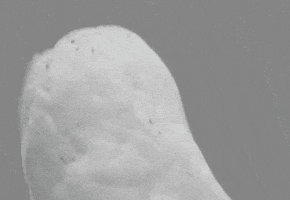The Case for Orthomolecular Medicine: An Introduction
Why I think it’s the most fascinating sub discipline under medicine, and why I believe it represents the future of true healing.
[Note for paid subscribers: Substack Live is this Friday, Feb. 7 at 9am Pacific/12pm Eastern. Message me your questions. I have a lot to discuss about the COVID spike protein and other topics.]
Innovations are born when people are unafraid to step outside prescribed paradigms and ask inconvenient and provocative questions.
It’s true that the best innovations emerge from innovators who are standing on the shoulders of prior genius. However, the tension between building on a foundation while simultaneously questioning everything about that foundation is what leads to the greatest advancements.
Orthomolecular medicine is a fascinating example of the exceptional progress that comes from just that tension—balancing imitation with innovation.
If you go to the Journal of Orthomolecular Medicine, they have a page called The Orthomolecular Hall of Fame which features doctors who made major contributions to the field.
One thing I noticed browsing through their bios is that they nearly all started as mainstream doctors trained at mainstream medical schools. But what they did after their training is what made them so impactful—the questions they asked, the problems they solved, and the discoveries they made.
Allow me to stop right here and define orthomolecular medicine since it is not a commonly used term. Perhaps you have never heard of it. Despite its relative obscurity, it deserves a spotlight because I believe it represents the highest caliber of healing information available.
I’ll use the definition the journal gives on this page:
Orthomolecular medicine is the use of natural substances, such as vitamins, minerals, amino acids, and other essential nutrients, to prevent and treat disease. The term ‘orthomolecular’ was coined by Linus Pauling, a two-time Nobel Prize-winning chemist, to describe the concept of using the right molecules in the right amounts to promote optimal health.
I have to admit, when I first read that definition, the science nerd in me swooned. Each time I read it, it still rolls off the tongue as pure poetry. Just listen to those glorious words:
“…vitamins, minerals, amino acids, and other essential nutrients to prevent and treat disease.” (I’m just gonna need a minute.)
So there’s a school of medicine founded on those principles???
So I’m not alone in my intuitive belief that most modern ailments can be solved by addressing nutrient deficiencies, toxicities, and metabolic dysfunction?
[Actual footage of me finding out that there is a cohort of mainstream-trained physicians who believe what I believe about natural medicine, and there’s a name for it]:
The above-linked page continues by listing the types of substances that fall under the category of orthomolecular:
vitamins
minerals
amino acids
fatty acids and cholesterol
enzymes
hormones
neurotransmitters
other naturally occurring substances that are utilized in metabolic activity [such as peptides]
Dietary proteins, carbohydrates, and fats (macronutrients) are also relevant to the practice of orthomolecular medicine
This is the point where some of you are like: well of course, duh, what else is new? Of course the most effective healing protocols are based on natural substances? Is there any argument?
But then there’s another group who’s like: but what about all the advances in modern medicine? You’re trying to tell me that those humble molecules can compete with the $86 billion spent each year by the pharma industry on the R&D of new drugs?
Is this an appeal to return to the stone age? Is below footage of one of the doctors you follow?
It might be. Stay tuned to find out.
Keep reading with a 7-day free trial
Subscribe to Fast Well | Feast Well to keep reading this post and get 7 days of free access to the full post archives.







